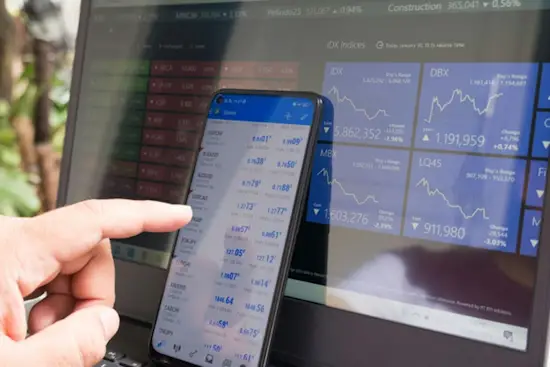When you’re planning an international move, navigating currency exchange becomes necessary. So, let’s go over the complexities of the process, provide practical insights, and equip you with the knowledge needed to make solid financial decisions!
Understanding The Basics
Navigating currency exchange is a fundamental task when dealing with international finances. At its core, it’s about swapping one currency for another, and the exchange rate determines how much money you end up with. Rates fluctuate constantly, influenced by various factors like interest rates, inflation, and geopolitical events. Central banks also play a vital role in currency valuation. Understanding these basics is very much necessary, as they impact everything from travel expenses to investments. So, if you’re planning to move abroad or invest in foreign assets, the essentials of currency exchange will empower you to make better decisions.
Factors Affecting Exchange Rates
Exchange rates remain in a constant state of flux. For instance, economic indicators like interest rates, inflation, and a country’s financial stability directly impact exchange rates. As investors react to political changes, geopolitical events can cause sudden shifts. Furthermore, market sentiment and speculation play a significant role in determining currency values. So, you need to account for these things when moving abroad on a budget. Keep an eye on these factors, as they can impact the value of your money when converting it to the currency of your new destination. By understanding these influences, you’ll be better prepared to navigate the financial aspects of your move abroad while making the most of your budget!
The Options Available

When the time comes to exchange your money, you have several options to consider. Traditional banks and online banking institutions offer these services, providing convenience and familiarity. Furthermore, kiosks and foreign exchange brokers cater to those seeking specialized assistance. Another emerging option is peer-to-peer currency exchange platforms, which connect individuals looking to exchange currencies directly. Fees vary among the platforms so it pays to check how much your transfer will cost. Also, not all platforms transfer to or from all countries so that is also a consideration.
Some Peer-to-Peer Platforms include:
- TransferWise (Get your first transfer free with this link)
- Midpoint
- moneycorp
- GlobalWebPay
- OFX
- Smart Currency Exchange
Each choice has pros and cons, so evaluating them based on your specific needs and preferences is essential. For instance, if you prefer convenience, traditional banks might be your go-to, but they may charge higher fees. On the other hand, foreign exchange brokers may offer competitive rates but might not be as accessible as a local kiosk.
Costs and Fees
Costs and fees can significantly impact your finances when dealing with international transactions. One of the primary expenses to watch out for is the exchange rate spread. This is the difference between the buying and selling rates offered by providers, representing their profit margin. Transaction fees are another consideration, as many banks and exchange services charge a flat fee or a percentage of the amount exchanged. It’s essential to be aware of any hidden charges that might be buried in the fine print, such as service fees, handling charges, or commissions. These can quickly add up and erode the value of your exchanged currency. To make the most of your money, compare the total cost of currency exchange among different providers and opt for the option that offers the most favorable rates and the lowest fees.
Timing Your Currency Exchange
Timing your currency exchange is a bit part of getting the best rates. This can, however, be tricky, especially if you’re used to a more mobile lifestyle. Rates are volatile and can change rapidly, impacting the value of your money. To maximize your returns, monitor the rate trends diligently. You can stay updated with various financial news sources and money converter tools. Planning ahead and waiting for the most favorable rate can make a substantial difference in your savings! However, remember that predicting market movements is challenging, and timing the market perfectly is nearly impossible.
Risk Management
Risk management is an important step when dealing with international finances. Understanding and assessing your risk tolerance should be done first. Your comfort level with potential currency fluctuations will guide your decisions. Diversifying your currency holdings can also mitigate risk. Holding multiple currencies can further help offset losses, too.
Furthermore, consider using financial instruments like forward contracts or options. These tools allow you to lock in exchange rates, providing protection against unfavorable rate changes. By proactively managing the involved risk, you can safeguard your financial interests and navigate international transactions with confidence.
Currency Exchange for Daily Expenses
Navigating currency exchange for daily expenses is a big part of moving abroad. Therefore, it’s something you need to start planning from day one, even before you’ve moved. For example, it’s helpful to work with companies like Moving Transparent, a reliable and experienced moving company that can assist with your move and provide money transfer services to help you bridge the gap in your financial needs until you’ve figured out your day-to-day currency needs. You can even check out these conveniences on their site, movingtransparent.com, before committing. Utilizing local banking services and ATMs in your destination country is also useful for easy access to cash and daily transactions. Prepaid travel cards can be convenient for budgeting, too, and they offer security by limiting your exposure to cash. So, by leveraging all of these options, you can ensure a smoother financial transition when moving abroad.
Legal and Regulatory Considerations
When navigating currency exchange, legal and regulatory considerations become especially important for managing your finances. After all, only compliance with local currency regulations lets you avoid any legal entanglements in your new country. Make sure to understand and adhere to the reporting requirements of your home country concerning foreign accounts and income. In some instances, currency restrictions and capital controls may be in place, affecting your ability to move money freely. Consulting with financial experts specializing in international transactions can be invaluable in ensuring compliance with these regulations.
A tool for financial success
With our exploration of navigating currency exchange, this knowledge will be able to assist you with maximizing the use of your budget. The insights you’ve gained will empower you to make confident decisions, whether moving abroad, investing internationally, or traveling the world! Therefore, currency exchange need not be daunting and can become a tool for financial success.
You might also like:
- Financial Resilience in Uncertain Times
- Simple Ways to Improve Your Relationship with Money
- 6 Passive Income Ideas to Grow Your Wealth
- 5 Things to Consider When Managing Money in a Relationship
- Family Finance Tricks to Help You Save Instead of Spend
Image courtesy of Unsplash


